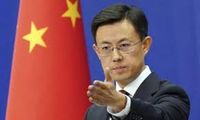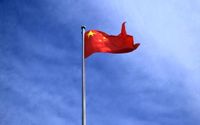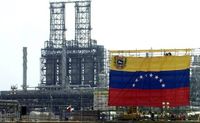BEIJING, March 25, 2025 – China has accused the United States of interfering in Venezuela's internal affairs following Washington's announcement of a 25 percent tariff on imports from countries that purchase oil and gas from the South American nation. The Chinese government is calling for an end to what it describes as unilateral and illegal sanctions imposed by the U.S. on Venezuela.
During a press conference on Tuesday, Guo Jiakun, the spokesperson for the Chinese Foreign Ministry, stated, "We ask the United States to stop interfering in the internal affairs of Venezuela, to remove the illegal unilateral sanctions imposed on Venezuela, and to do more things that lead to peace, stability, and development in Venezuela and other countries." Guo emphasized that the U.S. has long abused unilateral sanctions and what he termed 'long-arm jurisdiction' to interfere in the internal matters of other countries.
Guo's comments came in response to President Donald Trump's announcement made on March 24, 2025, that any country buying oil or gas from Venezuela would be subjected to a 25 percent tariff on any trade with the U.S., effective April 2, 2025. Trump justified the measure by accusing Venezuela of sending "deliberately and deceptively tens of thousands of high-ranking and other criminals" to the United States.
China, which is the largest importer of Venezuelan oil, has expressed strong opposition to the tariffs, warning that such actions could exacerbate tensions and lead to greater losses for U.S. companies and consumers. Guo asserted, "There are no winners in trade wars or tariff wars, and imposing tariffs will only cause greater losses to American companies and consumers." He also urged the U.S. to focus on facilitating Venezuela's peaceful and stable development.
In addition to the tariffs, the U.S. has imposed sanctions on Venezuela for several years, including a recent round in January that increased the reward for information leading to the arrest of Venezuelan President Nicolás Maduro and other officials. The Venezuelan government has firmly rejected the new tariffs, labeling them as "arbitrary, illegal, and desperate." Foreign Minister Yván Gil condemned the U.S. measures as a new aggression against Venezuela.
Venezuelan President Nicolás Maduro has vowed that the country will continue to produce and sell oil and gas to its allies despite the U.S. sanctions. He stated, "Venezuela will keep producing oil and gas and will continue selling to allied countries around the world." The Venezuelan government has characterized the U.S. tariffs as a failure of Washington's long-standing policy of maximum pressure against the country.
As tensions escalate, the implications of the U.S. tariffs extend beyond Venezuela. The decision is seen as part of a broader strategy by the Trump administration to cut off significant revenue sources for Maduro's regime while simultaneously increasing pressure on China, which has been a major buyer of Venezuelan crude.
Furthermore, the executive order that Trump plans to sign could grant Secretary of State Marco Rubio discretion in determining which countries will be affected by the tariffs. This situation raises concerns about the unpredictability of U.S. trade policy and its potential impact on global markets.
The backdrop to this conflict also includes recent U.S. tariffs imposed on Chinese goods, which have further strained relations between the two countries. China has responded to these tariffs with its own measures, including tariffs on various U.S. agricultural products. Guo reiterated that a trade war would yield no winners, stating, "Imposing additional taxes and tariffs will only bring greater losses to U.S. companies and consumers."
As the situation evolves, it remains to be seen how both the U.S. and China will navigate these tensions while addressing the broader implications for Venezuela and its economy. The international community is closely watching the developments, as the potential for further escalation looms large.
China's strong stance against the U.S. tariffs highlights its commitment to supporting Venezuela amid increasing pressure from Washington. With China being one of Venezuela's most important allies, the relationship between the two countries is likely to be tested as both navigate the complexities of international trade and diplomacy.
In conclusion, the U.S. tariffs on Venezuelan oil imports mark a significant escalation in the ongoing tensions between Washington and Caracas, while also impacting U.S.-China relations. The unfolding events will likely shape the geopolitical landscape in the region and beyond.








